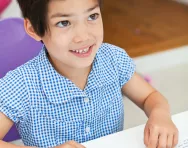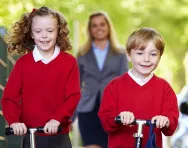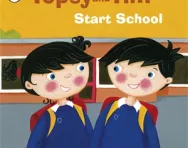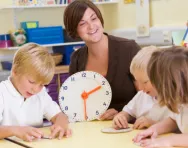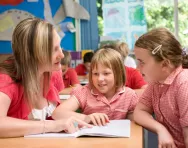Important update from TheSchoolRun
For the past 13 years, TheSchoolRun has been run by a small team of mums working from home, dedicated to providing quality educational resources to primary school parents. Unfortunately, rising supplier costs and falling revenue have made it impossible for us to continue operating, and we’ve had to make the difficult decision to close. The good news: We’ve arranged for another educational provider to take over many of our resources. These will be hosted on a new portal, where the content will be updated and expanded to support your child’s learning.
What this means for subscribers:
- Your subscription is still active, and for now, you can keep using the website as normal — just log in with your usual details to access all our articles and resources*.
- In a few months, all resources will move to the new portal. You’ll continue to have access there until your subscription ends. We’ll send you full details nearer the time.
- As a thank you for your support, we’ll also be sending you 16 primary school eBooks (worth £108.84) to download and keep.
A few changes to be aware of:
- The Learning Journey weekly email has ended, but your child’s plan will still be updated on your dashboard each Monday. Just log in to see the recommended worksheets.
- The 11+ weekly emails have now ended. We sent you all the remaining emails in the series at the end of March — please check your inbox (and spam folder) if you haven’t seen them. You can also follow the full programme here: 11+ Learning Journey.
If you have any questions, please contact us at [email protected]. Thank you for being part of our journey it’s been a privilege to support your family’s learning.
*If you need to reset your password, it will still work as usual. Please check your spam folder if the reset email doesn’t appear in your inbox.
Great games to prepare your child for school

A teacher once told me the best thing I could do to prepare my first child for school was to play with her. I raised an eyebrow – really? Not teach her to count to 10 or write her name? No, she said quite categorically, children learn many different skills at home by simply having fun and playtime is the single most useful activity for any child.
The best games for pre-school development
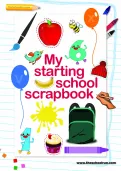
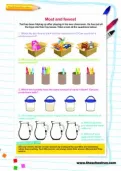
Claim A FREE Starting School Scrapbook!
- Packed with colourful activities
- Focuses on early English, maths & science skills
- Supports your child’s physical and social development
Tackling shyness can be harder, but "Having 'play dates' at home where your child is most comfortable, and with children they know, can help start to build social confidence. At first you might need to 'facilitate' their play. Start them off with an activity and then slowly withdraw, leaving them to it."
Role play and why it's important
Dr Harriet Tenebaum is a child psychologist at Kingston University who specialises in play. She says helping children learn about their feelings will stand them in good stead for coping with the many new experiences they will face at school: "In our own work, we have found that explaining ('he feels happy and sad because he likes the new bicycle, but thinks he might fall off') and getting children to explain why people feel the way they do ('why does he feel happy and sad at the same time?’) increases children's emotional understanding." For particularly shy youngsters (and parents who may feel self-conscious) puppets are a great way to ‘act out’ a variety of situations and emotions. Or use fuzzy felt and make faces change expressions!
5 great games to help prepare your child for school
- Building a tower from blocks: this deals with issues of frustration and taking turns.
- Action songs and rhymes: knowing the right moves and joining in help instil confidence and co-operation.
- Painting and drawing: ‘quiet’ activities involve sitting down and concentrating for short periods of time.
- Inviting other children to play: this can help overcome shyness and leaving them to play together prepares them to cope with separation anxiety.
- Packing away toys: encourages listening to instructions and co-operation.
We also love BBC Bitesize's Starting Primary School interactive game, My first Day at School. Help your child create their character and pick a school jumper, then explore the school and find all the different activities, from the register to painting time, lunchtime and play time in the playground!

